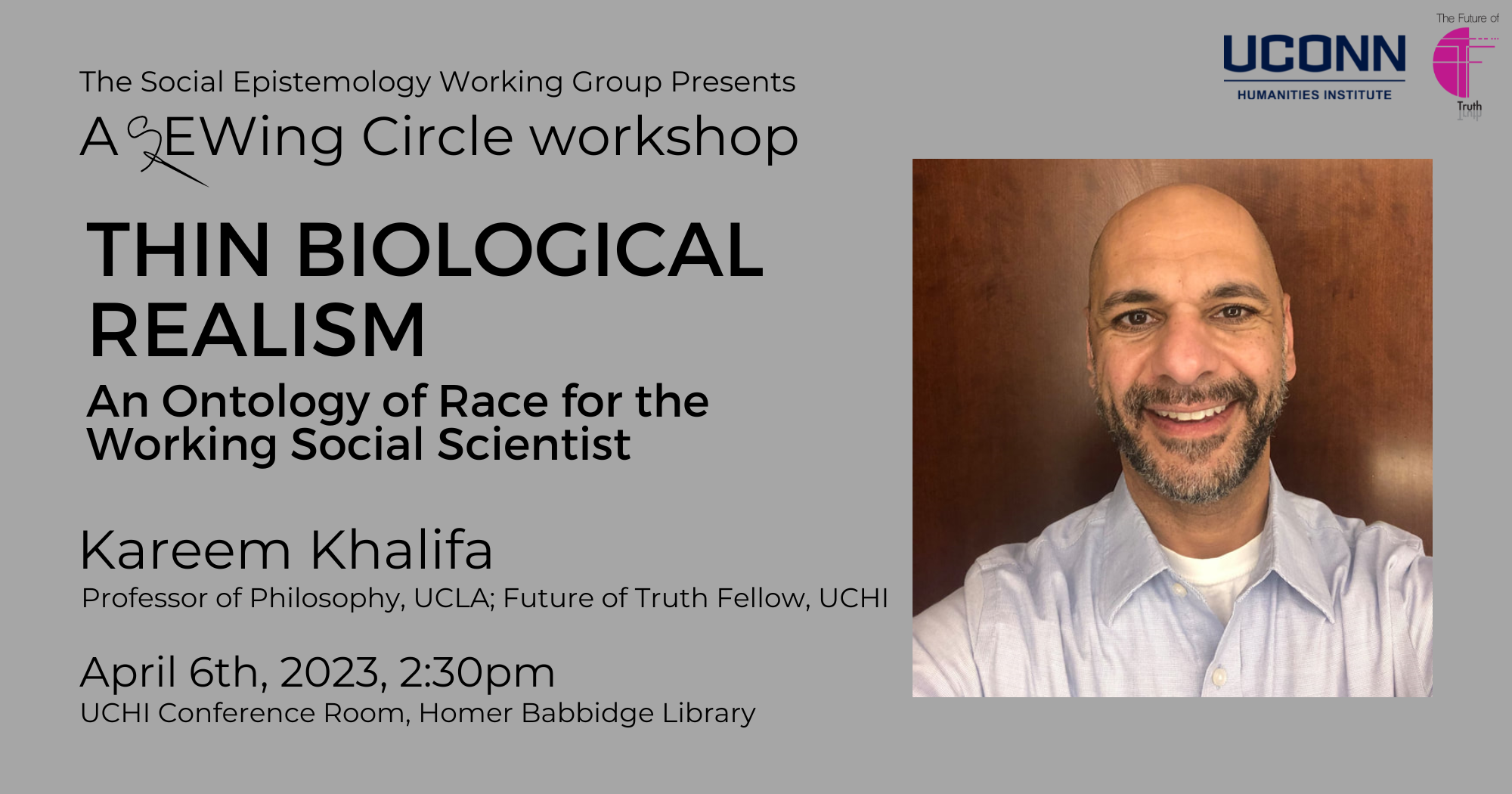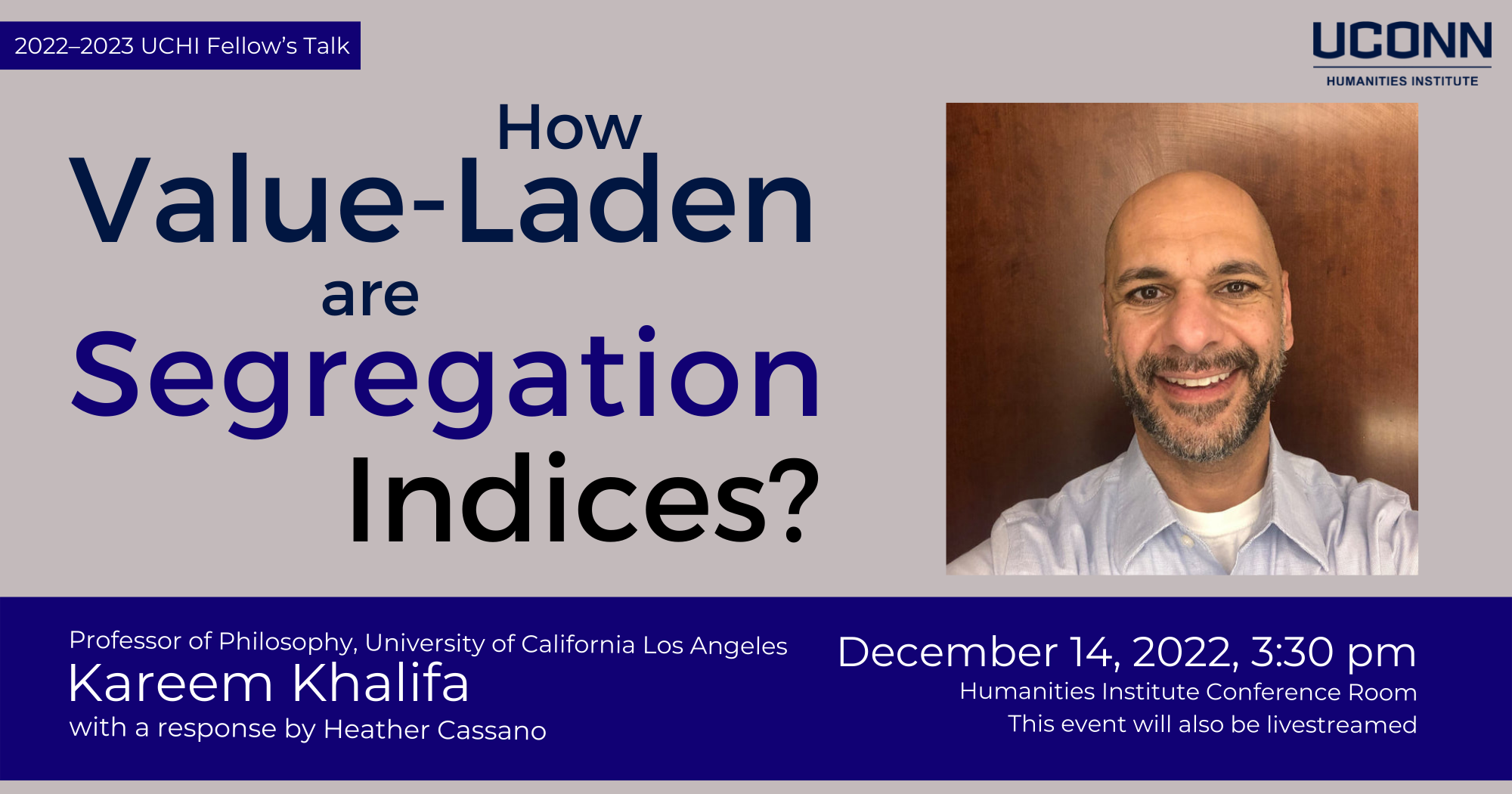
If you require accommodation to attend this event, please contact us at uchi@uconn.edu or by phone (860) 486-9057. We can request ASL interpreting, computer-assisted real time transcription, and other accommodations offered by the Center for Students with Disabilities.
The Social Epistemology Working Group presents:
A SEWing Circle Workshop
The Concept of Affective Polarization and the Ways to Measure It
Kareem Khalifa
April 6, 2023, 2:30pm
Homer Babbidge Library, Humanities Institute Conference Room
This event will also be livestreamed with automated captioning. Register to attend virtually.
Ontological discussions of race seek to answer two questions, “Do races exist?” and “If so, what are they?” In this talk, I’ll answer a slightly different question: “What must race be in order for social science to be empirically successful?” This change in questions has three surprising results. First, the standard philosophical methodology of first determining the meaning of race terms and then ascertaining whether those terms refer is not the most fruitful way of answering my question. Second, despite the obvious attraction of social constructionist accounts of race for the social sciences, an approach that construes races as groups of people with common geographic ancestry is more fruitful for empirical research. Finally, while this amounts to a kind of biological realism about race, it is “thin” in adopting no substantive commitments to biological theory.
Kareem Khalifa is a professor of philosophy at UCLA (2022–present). Prior to that, he was at Middlebury College in Vermont (2006–2022). His research interests include general philosophy of science, philosophy of social science, and epistemology. In addition to authoring over 30 articles, he authored the book, Understanding, Explanation, and Scientific Knowledge (Cambridge, 2017) and co-edited Scientific Understanding and Representation: Modeling in the Physical Sciences (Routledge, 2022). He is currently extending his previous work in these areas to social-scientific conceptions of race and segregation. He is currently a Future of Truth Fellow at the University of Connecticut’s Humanities Institute. In 2025, he will be the Senior Visiting Fellow at the University of Pittsburgh’s Center for Philosophy of Science. In 2017, he received the American Council of Learned Societies’ Burkhardt Award, which funded a five-year project, Explanation as Inferential Practice.


